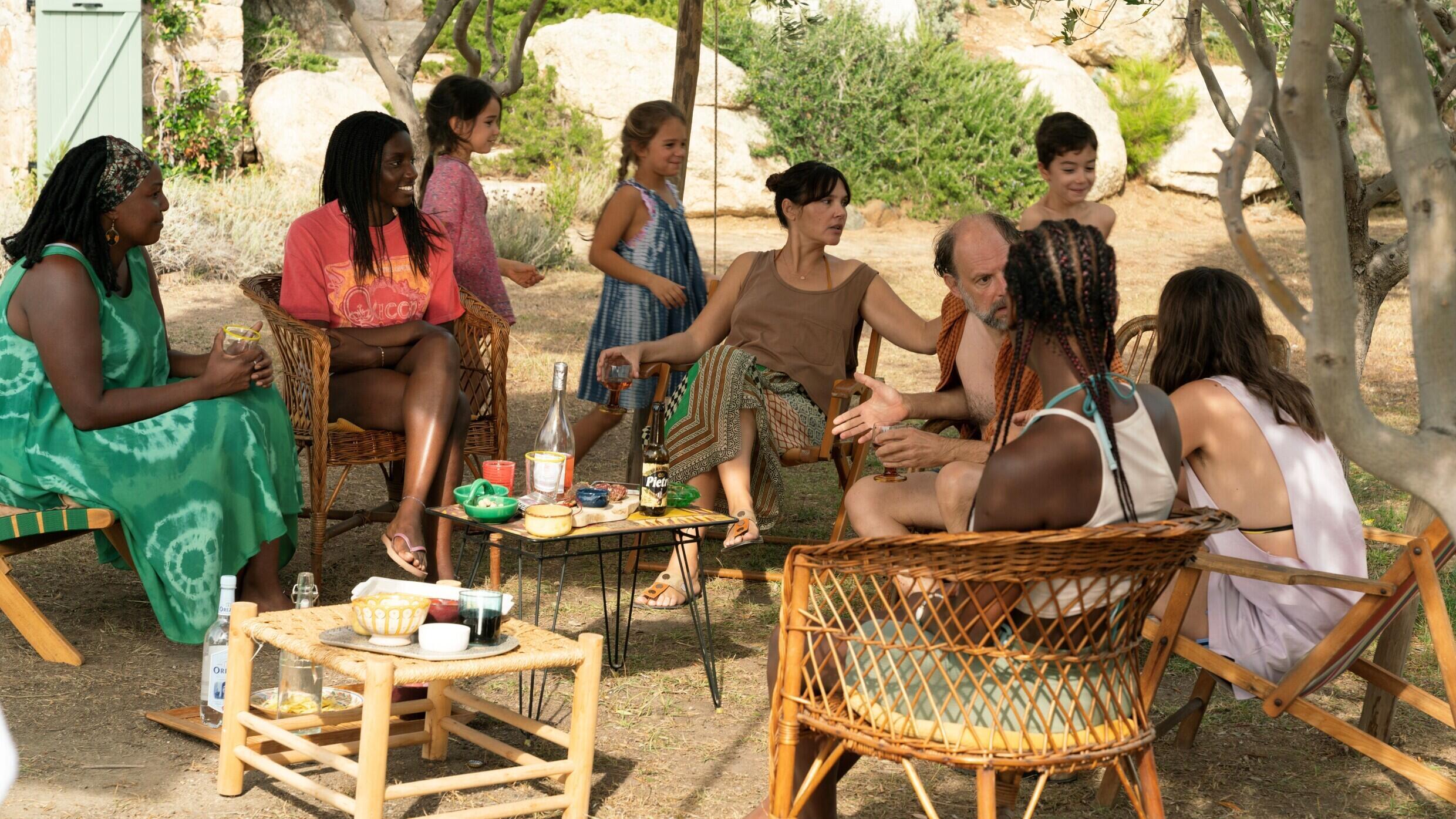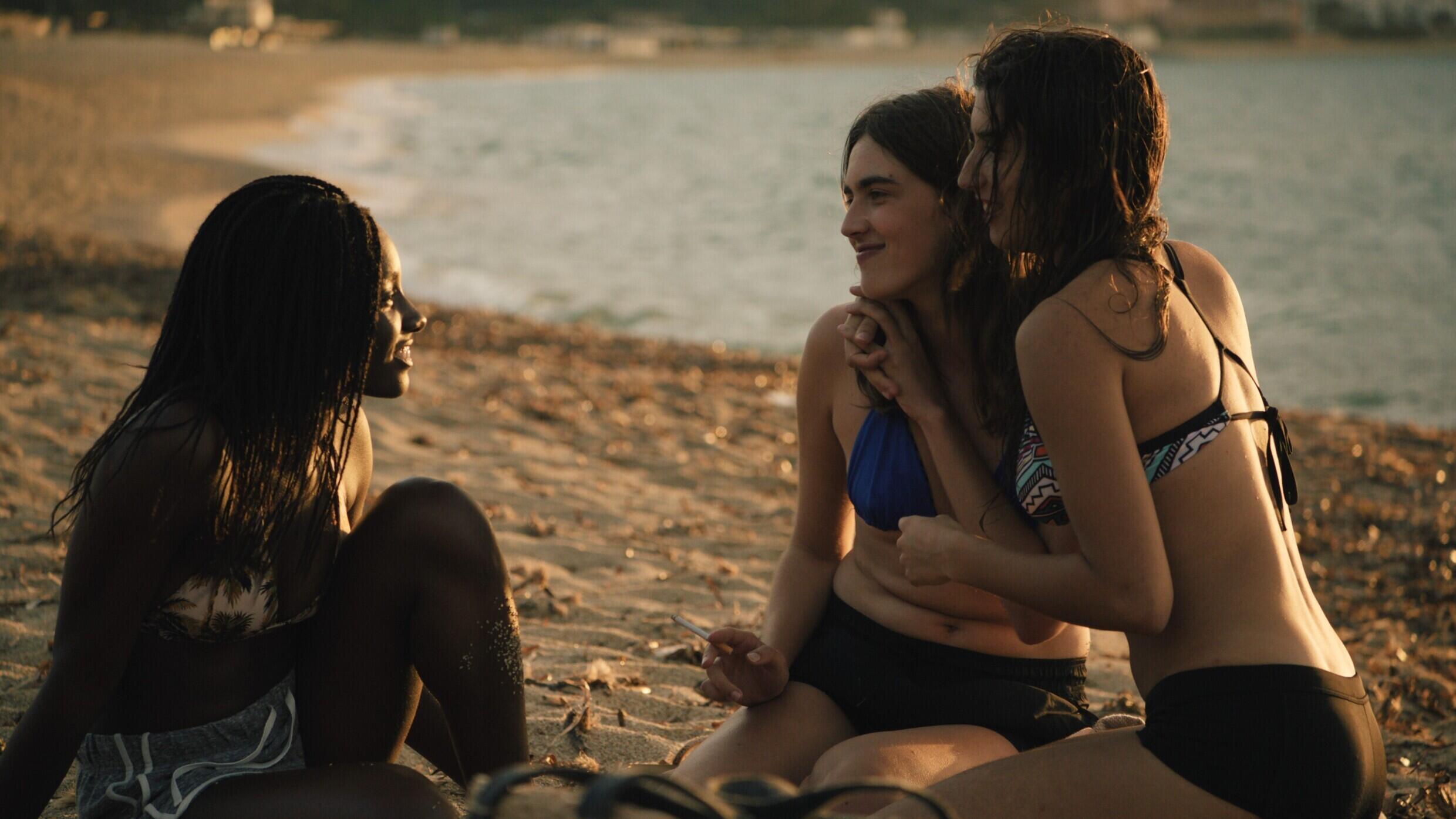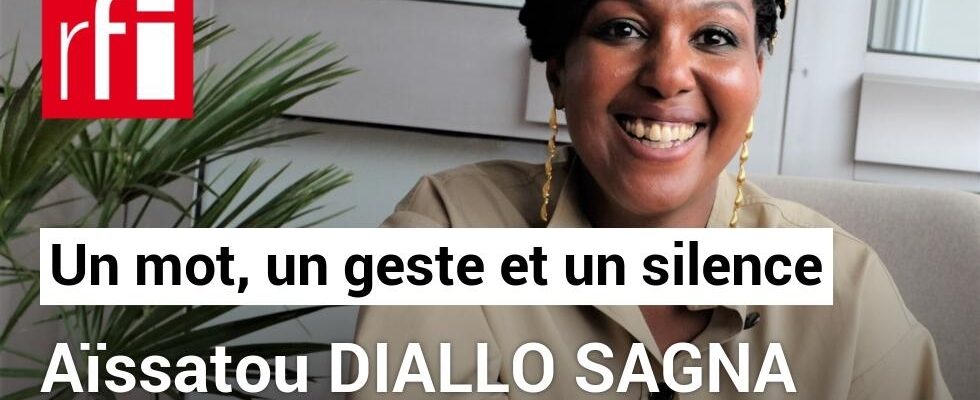“Le retour” tells the story of Khédidja, social worker, single mother of two daughters and heir to a hidden story. For one summer, a family invites him to take care of their children in a big house in Corsica. Fifteen years after leaving the island in tragic circumstances, she returns there with her daughters, Jessica and Farah, but the hoped-for summer rest turns into a quest for identity that deeply upsets the family. The director Catherine Corsini marks with this film also her personal return to Corsica, and the caregiver Aïssatou Diallo Sagna her return to the cinema.
RFI : Aïssatou Diallo Sagna, for The divide, you received the Cesar for Best Supporting Actress in 2022 for your first film appearance, but you continue to work at the hospital. who are you today ?
Aissatou Diallo Sagna : I am a mother of three children. I am a caregiver. I have recently been an actress.
RFI : Each “ feedback » presupposes a « go “. What was your go to get to The return ?
Catherine Corsini : My going, it was something that was missing in my life, a feeling, something that was cut in me, a part of a story of my life where there was a lack, a kind of missing part. And this missing part was really my father’s story, the story of Corsica, where I came from, my deep heritage, my roots. I have the impression that I have roots nowhere, that I am good nowhere. Maybe in Paris, because it’s a city that I chose to live in and I invented this place for myself. But my mother raised me on the side of my grandparents from Corrèze, from the center of France, and she completely separated me from my Corsican family.
What is the most important thing for you in The return ?
Aissatou Diallo Sagna : It’s the story of a family. These are intra-family relations, women’s fights. It is also a question of identity. They are many things at the same time. And then there is also this story of representation. I’m proud to have the leading role, to be able to carry this film with my magnificent “daughters” without it being the subject of the film.
How was the desire for a comeback triggered in you? ?
Catherine Corsini : I had the feeling of being torn apart and above all of feeling oppressed in this Corrèze family. As if there was an opposition, a trench warfare between these two places. I had a need, when I was fifteen, already with a lot of emotion, and then later, when I was 30. I still took 30 years of my life to really come back to Corsica and understand this place. For a long time I thought to myself : “ but I am not Corsican. My name is Corsican, but I’m not Corsican “. It took a long time for me to be able to tell myself that there was something possible with Corsica. That there was something that belonged to me and that there was a possible return to these roots, to this story. It was a very moving shoot, very psychologically taxing for me, because I really got to the heart of the beast. I went to shoot in the house where my father lived when he was little, which does not belong to me. I have nothing, I have no land in Corsica. But I went to this place that I knew still existed and that belonged to another part of my family. I went there, as if I wanted to reconnect, to seek, to find something.
You play Khedidja. This social worker returns to Corsica with her two daughters, 15 years after leaving the island, to do babysitting there. What is the stake of this return for Khédidja ?
Aissatou Diallo Sagna : I would say that Khedidja is there without being there. There is a part of her that has clearly died out, that she has clearly forgotten, neglected. In fact, she is no longer anything but a mother, she is no longer a woman. Until that famous trip, that famous “ feedback where she rediscovers herself as a mother, where she can finally speak freely, where she can finally speak to her daughters, especially her eldest daughter. Speech is released.
For what The return is there an indispensable film for our present times ?
Catherine Corsini : For me, it was, at a time in my life, essential to do so. Afterwards, with my young screenwriter, it’s also a film where we wanted to tell the story of today’s youth. We wanted to tell a family that seems to be united around this very protective mother. But, by protecting her children, she lies to them, she does not tell them the whole truth, hides things from them. Which makes his daughters very opposite. They are completely different from each other. And I also wanted to show this youth of today that, in order to constitute themselves, to understand themselves, to love themselves, to know themselves and to know their history, you have to be able to pass on their history with all the secrets, all the unspeakable things, all the mysteries, all the gray areas so as not to encumber the children, so as not to make them fantasize, so as not to make them discover things later, so as not to hurt them.
Jessica has come a long way since she is in search of her roots. But it also makes the way back. During the film, she goes back and forth.

In a scene from the film, your employer, the owner of the house, mispronounces your first name, Khedidja. Have you ever experienced this kind of situation in your real life ?
Aissatou Diallo Sagna : When it’s the first time, it doesn’t matter. When it comes to a person who has been employed for several years, it is clearly a lack of consideration. This means that this person does not interest you, that you are not looking to discover the other.
The film evokes problems caused by the difference in social class, education, but there is also an enormous space of freedom: sexuality. During the duration of the film, “mixed” couples form regarding social class, skin color, sexual orientation, age. Does the path to equality, freedom, fraternity and sorority pass through sexuality ?
Catherine Corsini : Sexuality is still something important in life. It is important to be able to choose, to be able to assume one’s choices, to be able to make them without constraint, in complete freedom… Not with the anguish of saying that one does not have the right to live this or that, it is not is not well seen, etc. Me, I come from a generation where living one’s homosexuality was taboo, it was hidden. It was terrible, we were pariahs in the families, we said nothing, we lied, we invented husbands, lovers, I don’t know what. We must be very careful if we remain a society that is still permissive and enjoys life.
In your previous film, The divide, you played a nurse. In The return, you are a social worker and babysitter. Playing these roles that are deeply rooted in the social life of a country, does that mean more than just playing for you? ?
Aissatou Diallo Sagna : It’s all the more important for me to be able to participate a little in the change and the evolution of cinema, and in the change that is taking place. We are not the ones who are going to revolutionize French cinema, but we are taking part in it. So it’s still very rewarding. These are social issues. Compared to The divide, I was very proud to be able to bring my expertise in relation to the hospital environment, to bring veracity and also to show our daily difficulties on our working conditions, on wages which are miserable, on the fact that we can sometimes being forced to put our own privacy aside. All this to take care of people without really having recognition.
It’s a women’s story. The fathers are absent, dead or dreaming. Does your film also talk about a crisis of masculinity ?
Catherine Corsini : With my co-screenwriter Naïla Guiguet, we both told our stories too. She was more on the side of the dreaming father, I on the side of the absent father. At home, this absent father has built a lot of my life. To also see my mother struggling alone, there were three girls at home. They were the paths of a fighting woman. It was difficult being a single woman raising her three children. That’s why in my films, there are always these women who are in that place, having to take charge of their lives, their destiny. Men are not absent today. They are fraternal, like the role of Marc-Andria (Cédric Appietto). They are sometimes condemned to clichés of virility, like the young Orso (Harold Orsoni). But in the end, we discover that behind that, there is someone tender and very human, but who is sometimes obliged to play the image expected of him in Corsica, etc. But this virility is ultimately just a bluff, a big protection. Men are also very sensitive. This is rather the message of the film.

